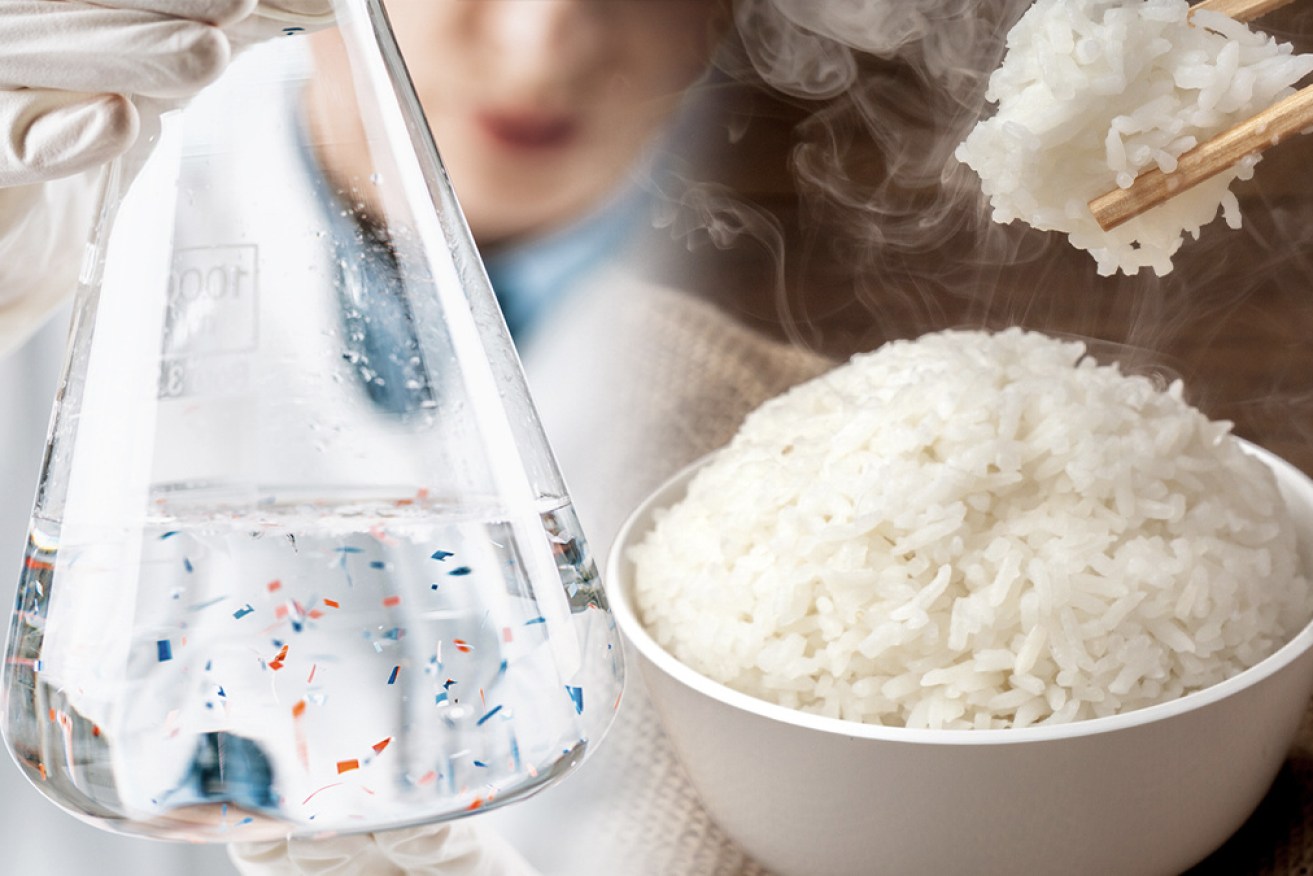Cooking a curry? Your rice could be hiding micro-plastics, warn scientists


Scientists are encouraging Australians to wash rice with water before cooking it to avoid eating micro-plastics. Photo: TND/Getty
Australians who love curries and risotto could be unknowingly eating one kilogram of micro-plastics every year, warn Queensland researchers.
Their caution was issued after discovering rice can contain traces of potentially harmful micro-plastics.
In their world-first study, led by the University of Queensland and published in the Journal of Hazardous Materials, the scientists found an average 100-gram single serve of uncooked rice can contain 3 to 4 milligrams of plastic.
In instant or pre-cooked rice packets, the risk of eating plastics is four times higher, with an average of 13 milligrams per 100 grams serve.
UQ researchers used their innovative technique to detect these tiny plastic pieces – similar to one they’ve used previously to study plastics in seafood and sewage.

UQ researchers used their unique method to test rice for micro-plastics. Image: UQ
They tested for seven different plastic types ranging from the most common plastic, polyethylene, to plastics used in clothing and food production, laminates, technical engineering, polystyrene, acrylics and tube piping.
The average grain of rice tested measured 8 millimetres in length. Micro-plastics are defined as a plastic material 5 millimetres or less.
The study’s lead author Dr Jake O’Brien, from UQ’s Queensland Alliance for Environmental Health Sciences, said the study was able to quantify the levels of micro-plastics in rice for the first time.
“Rice is a staple food around the world, so it is important we understand the quantity of micro-plastics we could be consuming,” Dr O’Brien said.
What’s the harm anyway?
Micro-plastics can carry a range of contaminants like trace metals and some potentially harmful organic chemicals.
They can also have carcinogenic properties, meaning they potentially cause cancer, and they can damage our DNA.
Sadly, micro-plastics are everywhere.
They’re virtually impossible to avoid around the home, with the little pieces often hiding in food and drinks without us even realising.
“Currently there are many unknowns about how harmful consuming micro-plastics is to human health, but we do know exposure can cause an element of risk,” Dr O’Brien said.
“It is important to recognise that we are in the early stages of developing methods to measure plastic contamination of foods and at the moment we are limited to only a few plastic types.”
One thing you can start doing now is washing your rice with water before cooking it.
According to the researchers, washing rice reduced plastic contamination by 20 to 40 per cent.








